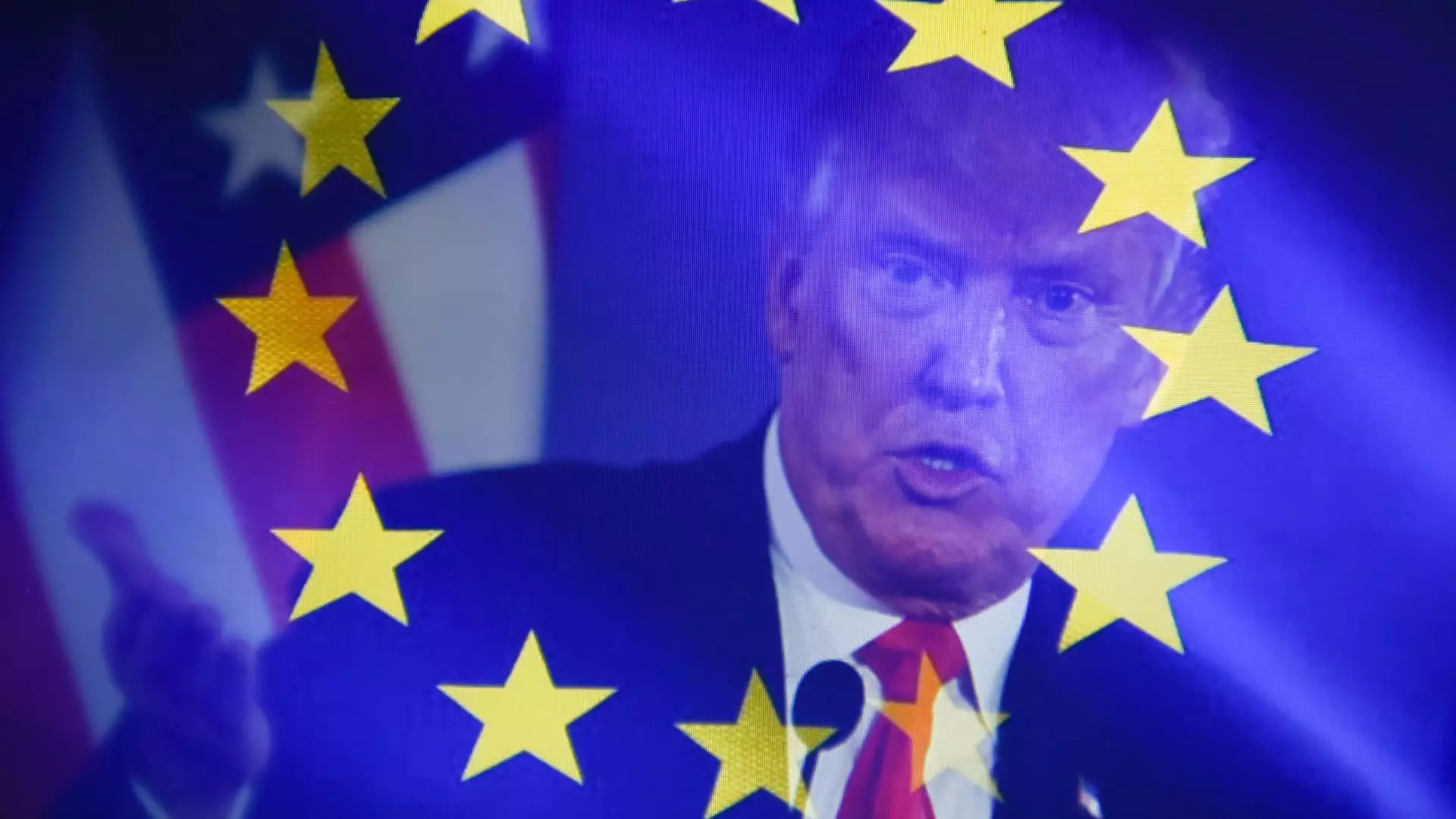In a world increasingly defined by the complexities of international trade, the European Union’s decision to delay the execution of its retaliatory tariffs on U.S. goods for 90 days marks a significant yet cautious step in the ongoing saga of transatlantic relations. Announced by European Commission President Ursula von der Leyen, this maneuver comes right on the heels of an unexpected easing of tariff pressures from the White House, showcasing a blend of pragmatism and opportunism in the realm of global economics. The essential question arises: is this pause a genuine attempt at diplomacy, or merely a tactical retreat by both sides?
While the EU prepared to finalize a strategy targeting an array of U.S. goods—including clothing, poultry, and machinery—the decision to give negotiations another chance reflects a deeper political calculus. Von der Leyen’s remarks about wanting to stabilize the global economy resonate with a broad audience, invoking ideals of economic cooperation and mutual benefit. However, beneath this veneer of diplomacy lies an undercurrent of dissatisfaction that challenges the very principles of international trade as they are understood today.
The Art of Trade Negotiation
The 90-day reprieve seems rooted in a calculated decision to prioritize dialogue over escalation. Von der Leyen rationalizes this pause, arguing that “Tariffs are taxes that only hurt businesses and consumers.” Such statements may sound palliative, but they also serve as a poignant reminder of the inherent paradox within tariff discussions: the constant battle between protectionism and free trade. Critically, this moment could serve as a litmus test not only for U.S.-EU relations but also for the broader implications of tariff policies worldwide.
From a liberal perspective, the EU’s willingness to negotiate suggests a proactive approach to global economic interdependence. Yet the reality remains stark; U.S. tariffs have created a battleground where only the most resilient businesses can hope to survive. Negotiations should not be about navigating the minefield of existing tariffs but rather about dismantling these barriers altogether. A zero-for-zero agreement, as advocated by Von der Leyen, would reflect not just a mutual understanding but a prioritization of shared interest over nationalist instincts.
The Stakes Are High
However, the stakes are high, and the consequences of failure could be devastating for both economies. If negotiations collapse, the EU’s readiness to launch countermeasures could escalate into a full-scale trade war that neither party truly desires. The potential for targeting U.S. services, particularly in the tech sector, could dramatically alter the dynamics of the conflict. A trade war could spiral beyond steel and aluminum, engaging the very heart of the digital economy, increasing pressure and uncertainty.
Moreover, the influence of political rhetoric cannot be understated. With Trump frequently accusing the EU of unfair trade practices, the atmosphere is charged with tension and mistrust. This becomes more than just an economic issue; it becomes a battleground for political posturing, where each side attempts to save face while nudging the other into concessions. The challenge lies in balancing domestic expectations while maintaining an international image.
Europe’s Diversification Strategy
In the backdrop of these deliberations, the EU’s agenda extends beyond mere negotiations with the U.S. The push to diversify trade relationships and strengthen existing ties with other nations is not only strategic but essential for reducing reliance on any single economy. The interdependence of global markets means that a shift in one area can have cascading effects worldwide. Therefore, the EU must adeptly navigate these treacherous waters, ensuring that it does not detract from its broader trade objectives while dealing with the U.S.
In the heart of this intricate dance is the paradox of globalization. As trade becomes inherently more complex, the solutions need to reflect that evolution. The EU’s response—balancing firm countermeasures with open negotiation—suggests a forward-thinking approach. Acknowledging economic complexities should guide both Europe and America toward a future where collaboration takes precedence over conflict, a necessary evolution if we are to achieve sustainable economic growth.
In this current climate, where economic stability hangs by a slender thread, one must wonder: are we truly ready to engage in the era of constructive dialogue, or are we resigned to repeated cycles of retaliation and conflict? The coming months will be crucial in determining not just the fate of tariffs but also the nature of transatlantic relations for generations to come.



Leave a Reply